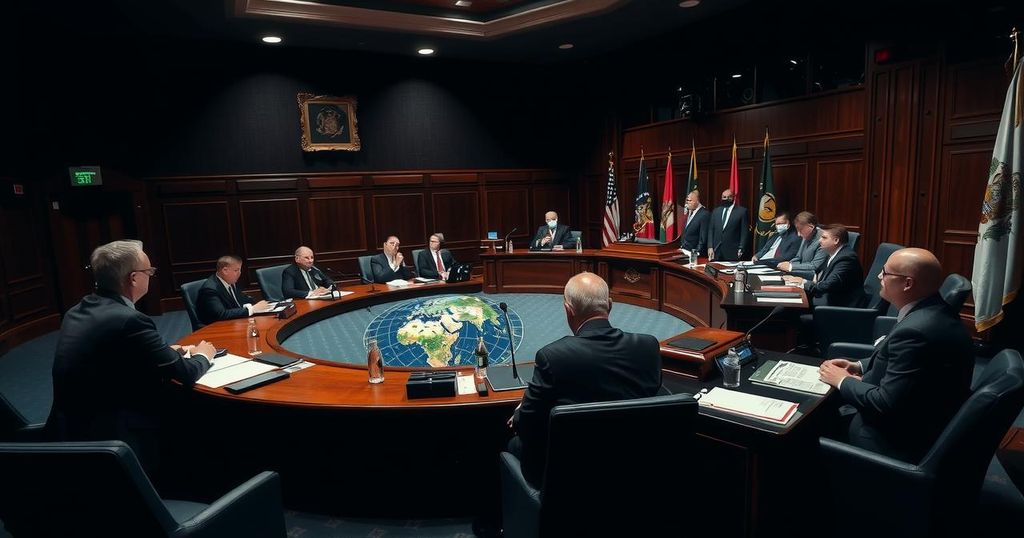ICJ Commences Hearings on Climate Change Responsibilities and Reparations
The ICJ in The Hague is hearing from nearly 100 nations regarding climate responsibilities and reparations, initiated by Vanuatu. The hearings, which will last until December 13, aim to clarify obligations surrounding greenhouse gas emissions. While the court’s judgment is non-binding, it may impact future legal actions by countries affected by climate change, with the expected opinion released in 2025.
The International Court of Justice (ICJ) in The Hague has commenced hearings on crucial climate change issues, examining the legal responsibilities of nations regarding climate action and reparations for climate damage. Nearly 100 countries, including the Pacific island nation of Vanuatu, which brought forth this initiative, are presenting testimonies. The court’s advisory opinion, while not legally binding, may bolster global climate litigation by clarifying obligations for greenhouse gas emissions mitigation and reparations for harm caused by climatic changes. Vanuatu’s experience, especially following severe cyclones last year that affected 80% of its population, underlines the urgency of these discussions. The hearing is anticipated to culminate on December 13, with the ICJ’s opinion expected in 2025.
The significance of the ICJ hearings lies in their potential to inform international climate law. This initiative, rooted in a proposal by Fijian law students five years ago and adopted by Vanuatu, addresses urgent issues arising from the climate crisis, particularly its implications for small island states that face immediate threats from rising sea levels. The UN General Assembly’s referral of these questions signifies a collective international concern about the adequacy of current climate commitments, particularly by developed nations, to support the most affected. Vanuatu’s representation at the hearing emphasizes the pressing need for legal clarity on the obligations countries have to combat climate change and to address historical emissions that contribute to current environmental crises.
In summary, the ICJ hearings mark a pivotal moment in climate law, providing a platform for nearly 100 nations to address the pressing challenges posed by climate change, particularly the responsibilities of states to mitigate greenhouse gas emissions and the reparative actions required for harm done. As the court hears testimonies until December 13, the resulting opinion, expected in 2025, has the potential to influence future climate litigation globally, particularly for vulnerable nations seeking justice for climate-induced damages.
Original Source: www.bbc.com




Post Comment